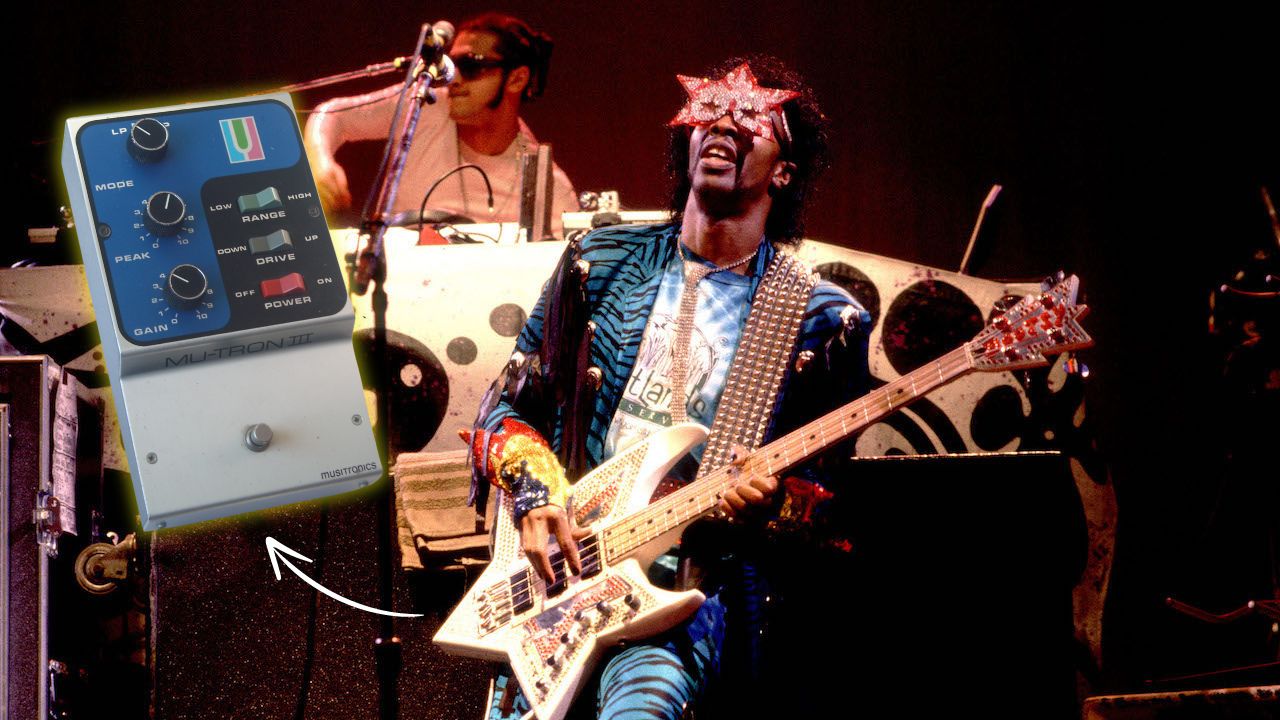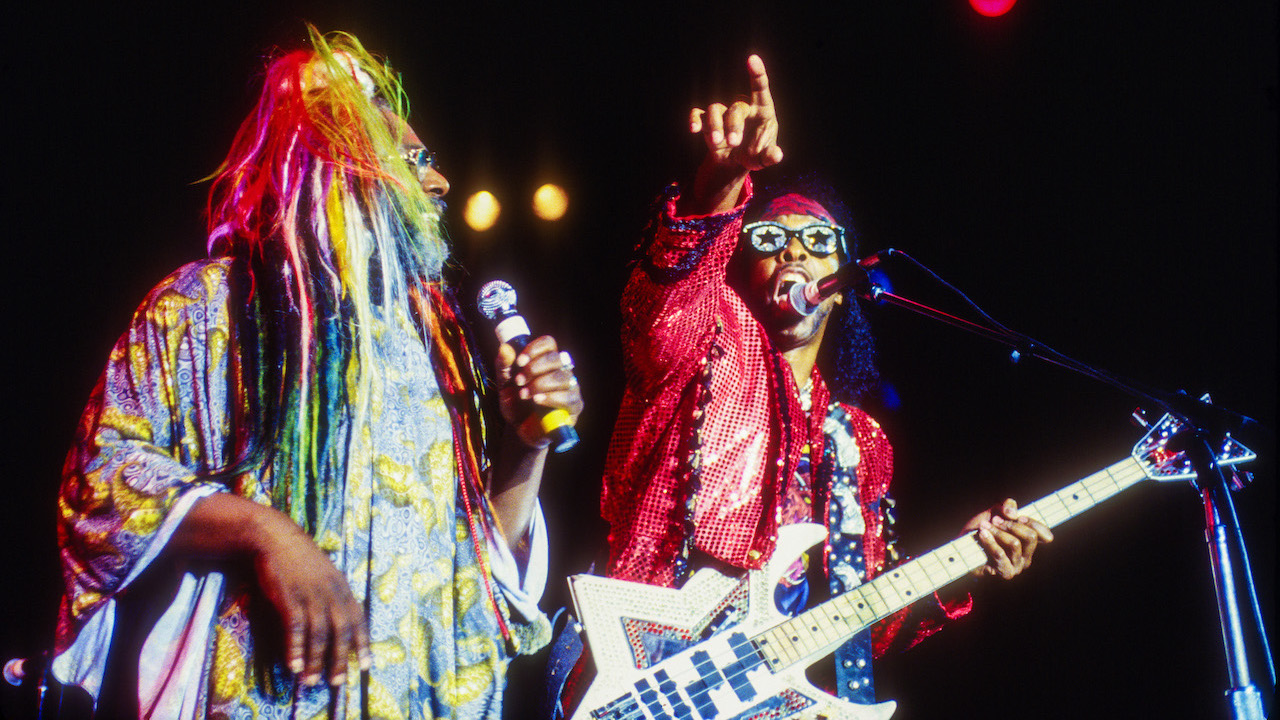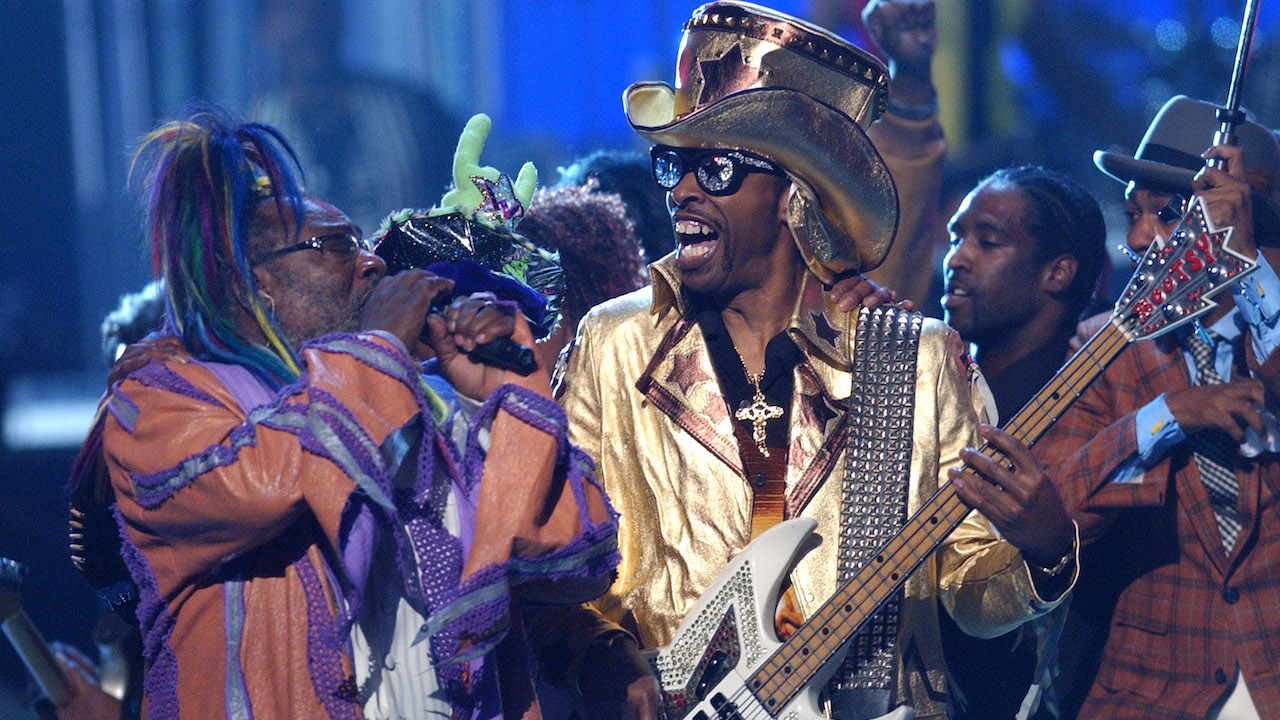“Until I found the Mu-Tron, I never heard anything that made the bass sound totally wacko”: How Bootsy Collins’ mastery of the envelope filter became the flamboyant funkateer’s signature sound
Bootsy Collins piled on the effects on Parliament’s P-Funk (Wants to Get Funked Up)

Parliament's 1975 concept album Mothership Connection is among the best of a dozen or so tremendous P-Funk recordings produced between 1975 and 1979. The album also represents two watershed moments in the history of funk.
First, it marks the addition of saxophonist Maceo Parker and trombonist Fred Wesley, long-time funk veterans from the James Brown regiment, to the P.Funk fold. Second, it heralds Bootsy Collins's emerging mastery of the Mu-Tron Ill envelope filter pedal, the effect that became the flamboyant funkateer's signature sound.
Bootsy had already revolutionised funk bass guitar at age 19, when a year-long stint with James Brown yielded such bottom-bouncing classics as Get Up (I Feel Like Being A) Sex Machine and Super Bad. But that Mu-Tron added extra stank to Bootsy's deliciously dancing style.

“When I kick on the effects, that's the gooey part,” Bootsy told Bass Player in December '98. “Until I found the Mu-Tron, I never heard anything that made the bass guitar sound totally wacko. When I played it for some girls in the studio, they said, ‘Ooh, what's that wet, watery sound? That's sexy!’ Oh, man – all of that rattle made me want to play every song with that sound!”
The key to copping Bootsy’s P-Funk groove isn't an envelope filter, though. Most important is to internalize the seriously swung 16th-note feel. At the moderately slow tempo of P-Funk (Wants to Get Funked Up), those swinging 16ths provide a kind of internal propulsion, making every beat feel nearly as strong as the one.
Be sure to feel that underlying rhythm even as you play the quarter- and eighth-notes of the verse's staccato unison riff, where Bootsy keeps his tone clean and his notes clipped. Bootsy cuts loose in the chorus, whipping out syncopated lines and the Mu-Tron’s filter, which kicks in more the harder he plays.
“How you hit the note tells the gadget what to do. If it seems like it doesn't work for a certain song, it might work if you play differently – if you change how you talk to the pedal."
Get The Pick Newsletter
All the latest guitar news, interviews, lessons, reviews, deals and more, direct to your inbox!
The first chorus contains several delicious Bootsy-isms. First, note how he almost never fails to play the one. At the beginning of each two-bar phrase he nearly always plays eighth-notes, a syncopated 16th figure, and a beat three rest, which matches the straight-then-syncopated rhythm of the “Make my funk the P-Funk” chorus lyric.
Other chorus highlights include several bent-string slurs and position-shifting licks, a sick syncopation and several phrase-ending accent slides, which – though lacking in specific pitch – are dripping with all-around funk. Every one of these passages plays into Bootsy's overall phrasing, which accentuates the drama of the chorus's tension and release.
Beginning with the third chorus, Bootsy and the band stay on the quieter verse riff through nearly four minutes of solos and sung choruses. Bootsy varies the bassline sparingly, occasional swapping in a pair of 16th-notes for an eighth or heralding a new section with a deep slide.

At 6:32, the Mothership kicks in the warp drive for the final repeated chorus. Dig the hammer-on riffs, the drum-matched rhythm, and the delicious 16th-note riff, made even tastier by Bootsy's temporary shift to a straight-16th rhythm.
P-Funk (Wants to Get Funked Up) is a veritable master class in funk bass syncopation, which Bootsy put in perspective like this: “It started off with the one. Then the ands and the ifs were added – all the in-between things. But as long as the one is there, your ands and ifs mean something. If the one is not there, it's kind of like daydreaming.”
“I asked him to get me four bass strings because I only had a $29 guitar from Sears”: Bootsy Collins is one of the all-time bass greats, but he started out on guitar. Here’s the sole reason why he switched
“I got that bass for $50 off this coke dealer. I don’t know what Jaco did to it, but he totally messed up the insides!” How Cro-Mags’ Harley Flanagan went from buying a Jaco Pastorius bass on the street to fronting one of hardcore’s most influential bands










